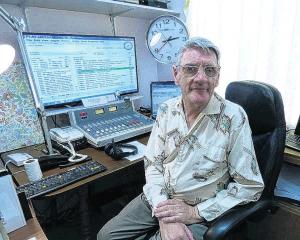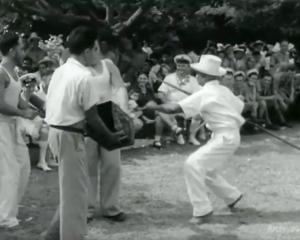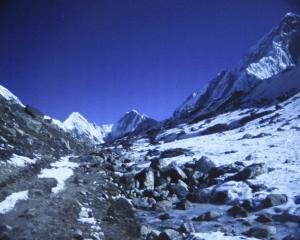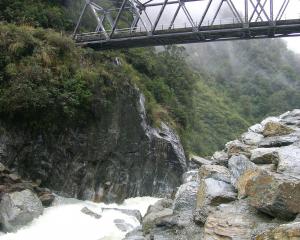
There was a long a circuitous journey to Jim Childerstone's best day.
That first morning on the Arrow sticks in the mind.
It was August 1947 and I was met late afternoon by grandfather Dr W.B.O. Ferguson and Uncle Kim near Arrowtown after a 12-hour journey from Christchurch over mostly gravel roads in a Mount Cook Company bus. Aged 12, this opened up a whole new world.
That first morning there was the clatter of horse and gig driven by Jock Henderson bringing the milk from Feely's farm for the town supply.
Quail called from above Kim and Jean Ferguson's old stone cottage above the Presbyterian church, near the entrance to the old gold-mining town.
The melting snows on Brow Peak and Mount Soho heralded spring in the Wakatipu and there was the aroma of flowering broom and rosehip briar.
It had been a long journey. In fact, six years to reach this place, and some form of stability. And there was no way I was going to be shifted anywhere else.
Six years earlier, the sounds of my world had been the dull thud of gunfire and ack ack bursts along the Colombo waterfront in what was then Ceylon.
It was late 1941 and the Japanese had taken Malaysia. Singapore was about to fall. And there we were, with mother Mary (nee Ferguson), camped on the waterfront awaiting a vessel to get us away from a potential invasion.
Father Walter was somewhere in the jungles of eastern Ceylon waiting for the invasion.
Remnants of the British Fleet Air Arm were temporarily parked off Trincomalee with some Australian naval vessels.
The Japanese naval fleet as well as German U-boats were virtually blocking off eastern approaches towards Australia.
Japanese reconnaissance planes were having a serious look at Ceylon as the next target after Burma. I was about to turn 7.
At some stage, possibly about midnight, groups of us were ferried out to a waiting cargo boat. We were basically refugees.
There were some Malaysia escapees, but we were mostly Ceylon expatriates of British, Australian and New Zealand stock involved with tropical agriculture.
Father had been involved with tea planting development. Having boarded, the big question was where to next?
With the Japanese entry into the conflict the seas in the eastern Indian Ocean had become no-go areas.
After some three weeks at sea our captain gave up the idea of trying to make it to Australia. Instead, Durban was our destination.
Once in South Africa we were constantly on the move. I shifted from school to school.
My first billet was a Jewish family, the Tannanbaums, a pharmacist who was able to pick up news reels, mostly of the war, which terrified us kids with scenes of death and destruction. But they also showed cartoons as light relief.
One of the schools was a strict Catholic institution near Pietermaritzburg, called Highbury. The discipline was merciless, particularly for non-Afrikaners. Blacks were strictly segregated.
I ran away after one term. Went bush. But was found and sent back to Durban.
Mother then found me a school that took boarders near the Witwatersrand, called Treverton. It was run by an Englishman, a Mr Binns. We were a mix of Afrikaners and refugees.
It was where I learned the art of rugby, the South African way under a former Springbok.
Holidays were spent on farms, where I remember being chased by baboons while on horseback.
At that school we lived on mealie-meal and mabella porridge with plenty of cream.
From being a skinny refugee I put on some muscle.
By 1946 it was all over. It was back to Ceylon briefly before catching a passenger boat to Oz and on to New Zealand in 1947.
My father had to get back to his job. But there was no way I was leaving Arrowtown where I had started school.
It must have been the call of the mountains. And a place I was finally to call home.
- Jim Childerstone is a semiretired forester from Hampden.
Your best day
Tell us about your best day. Send submissions to odt.features@odt.co.nz. We ask that you don't nominate the day you were married or when a child arrived. But any other day is fine.












